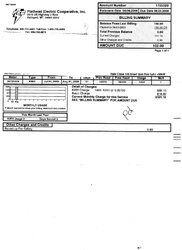It seems in my situation i should just shut my pellet stove off this winter. I used this calculator, http://www.stcroixheat.com/fuel.php and found at my electric rate i am throwing money up the chimney with the pellet stove. My electric rate all in, total bill divided by KWH used comes to .067716 a KWH. The cheapest deal on pellets i can find is $245 a ton. Is this calculator accurate???
FWIW for those who cannot believe my rate, check here.........
http://www.flatheadelectric.com/rates/rates.html
FWIW for those who cannot believe my rate, check here.........
http://www.flatheadelectric.com/rates/rates.html


